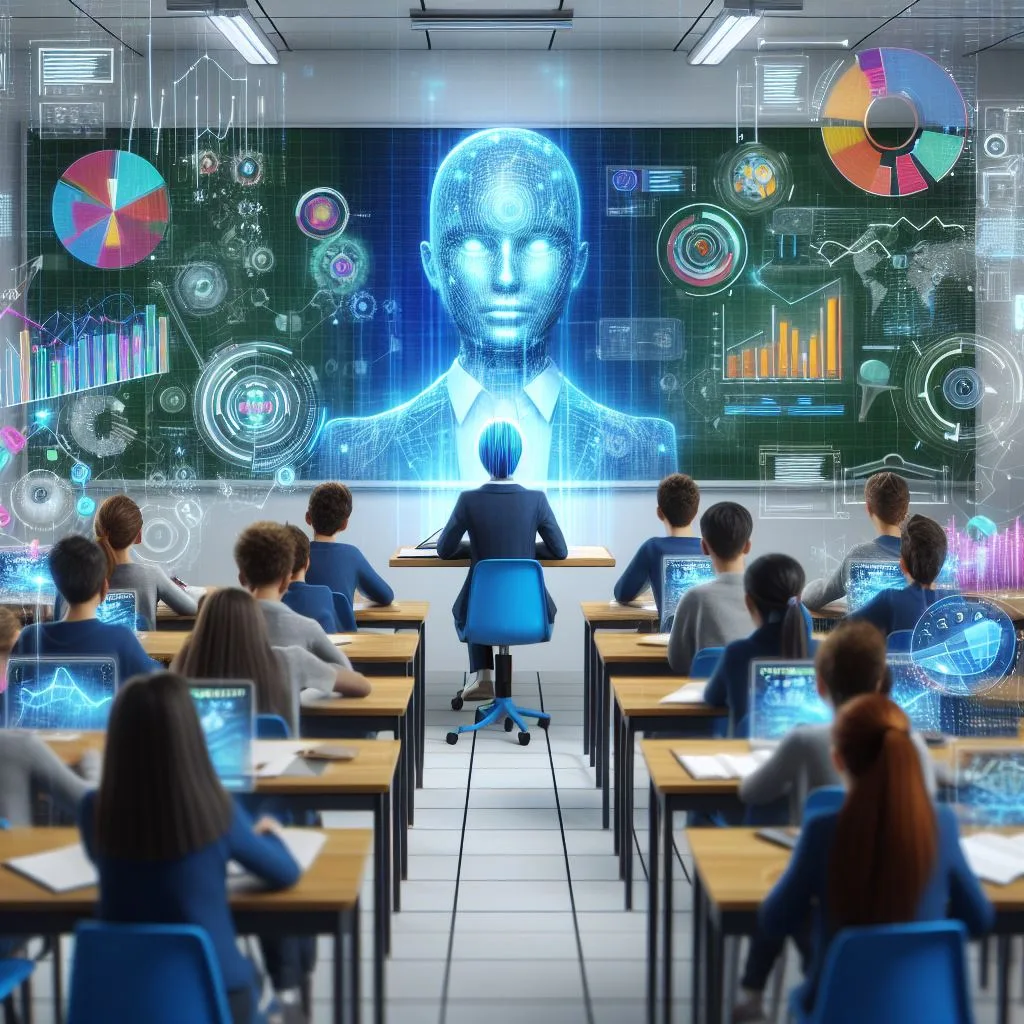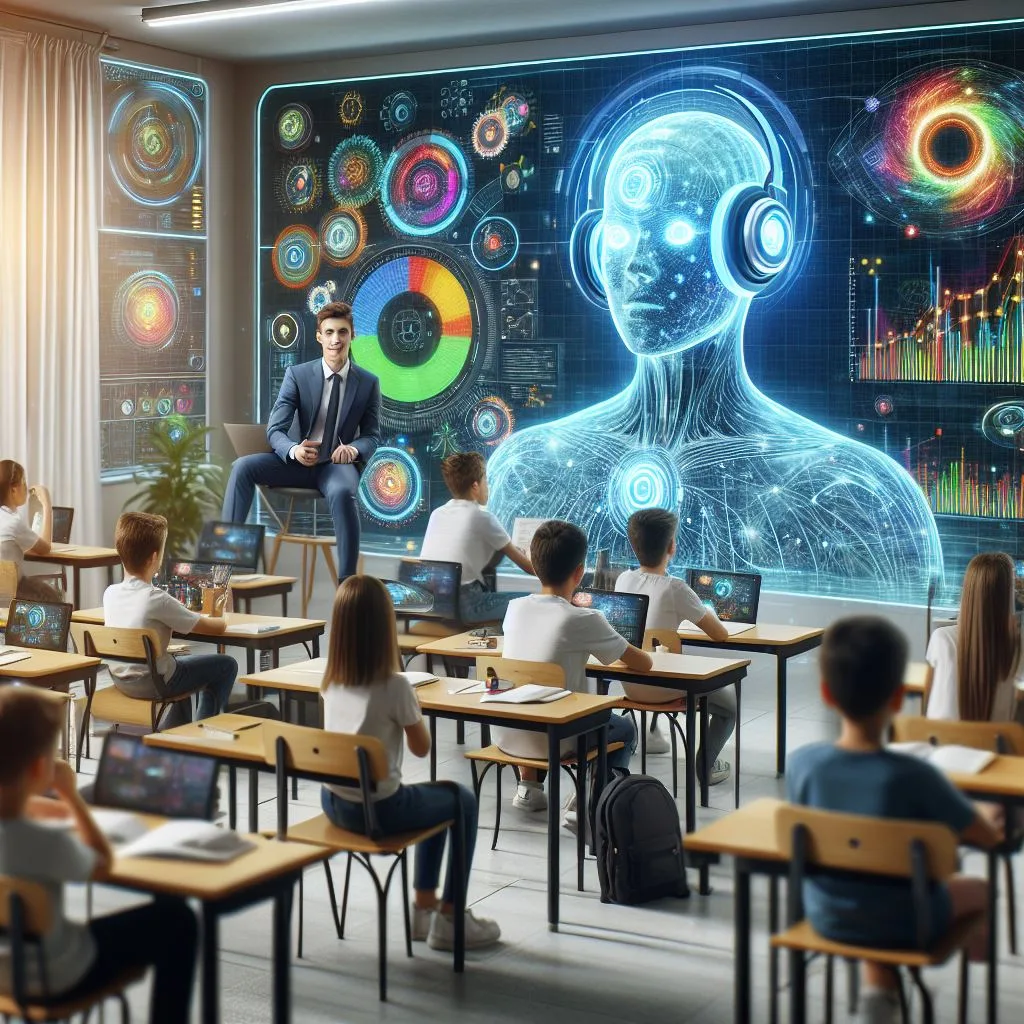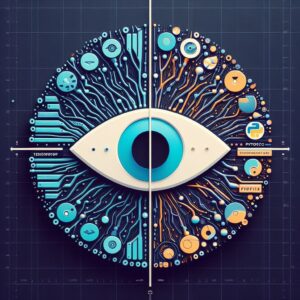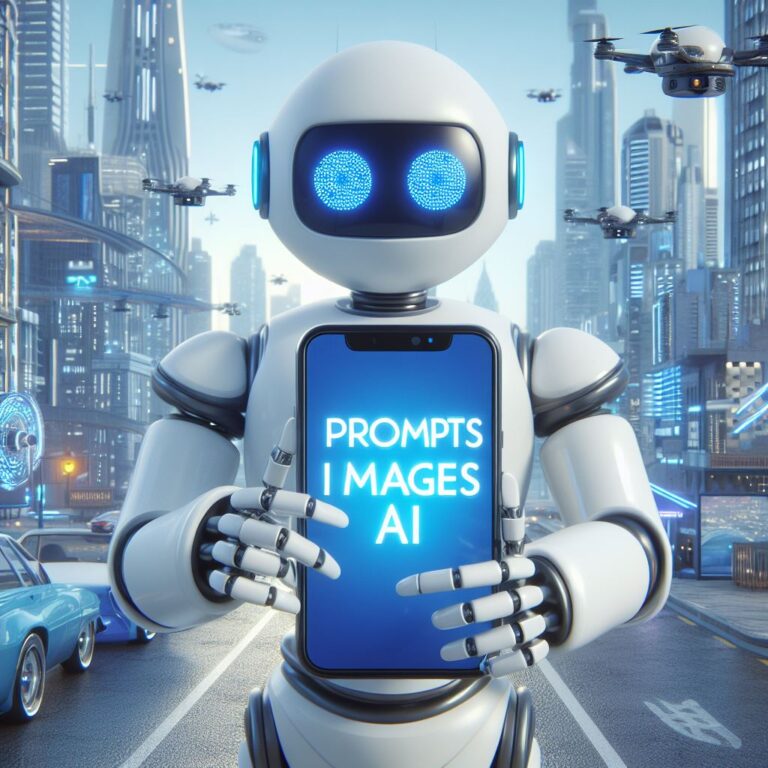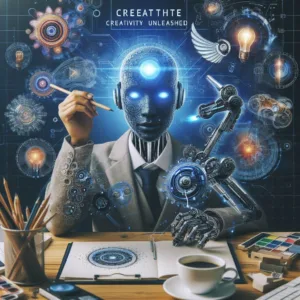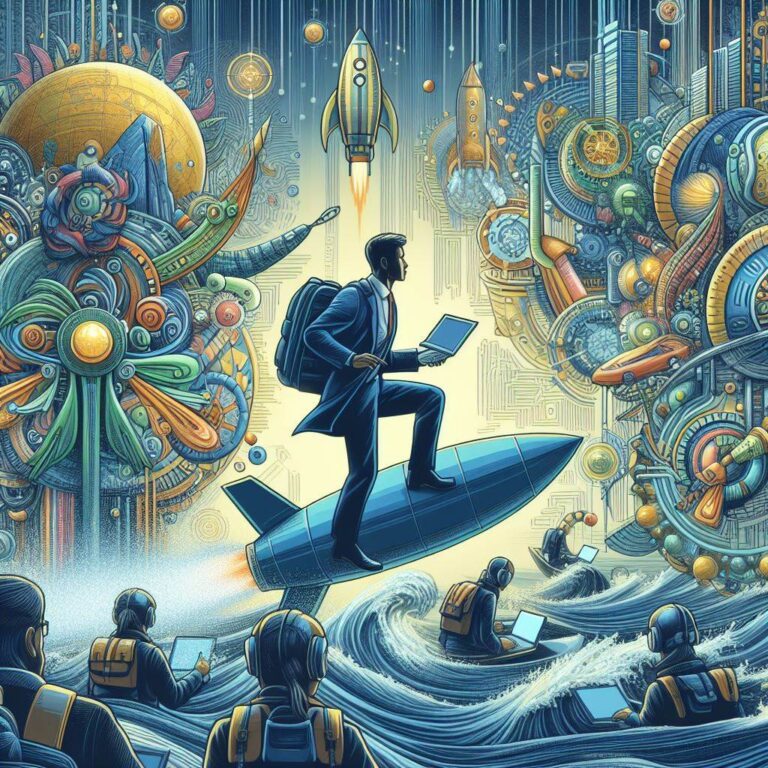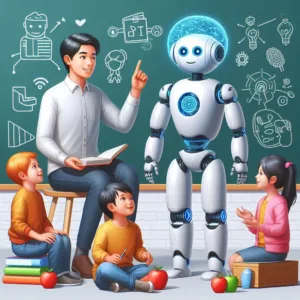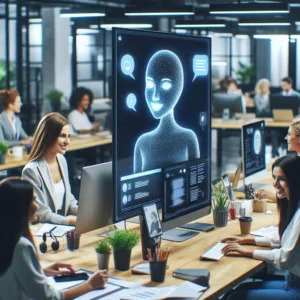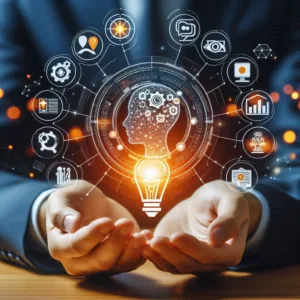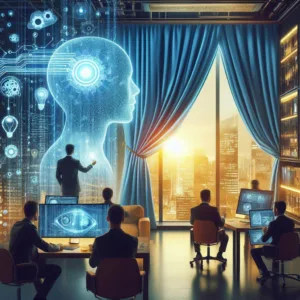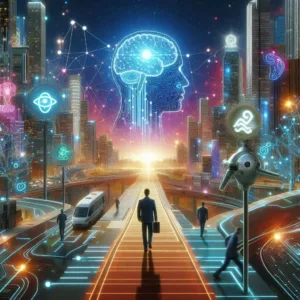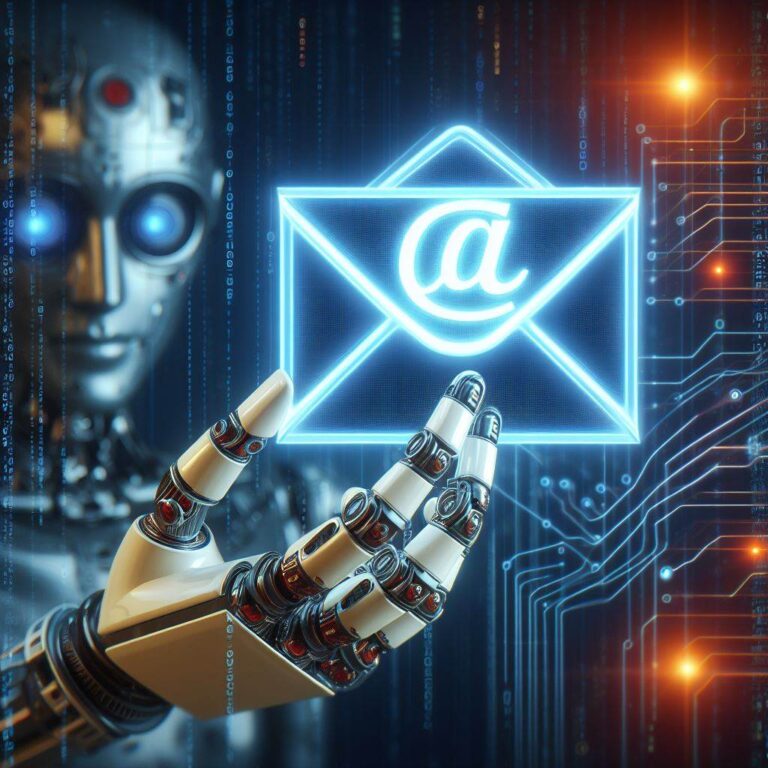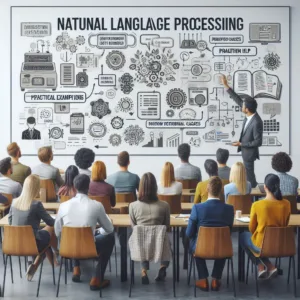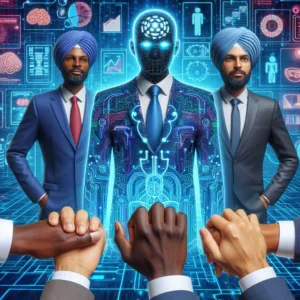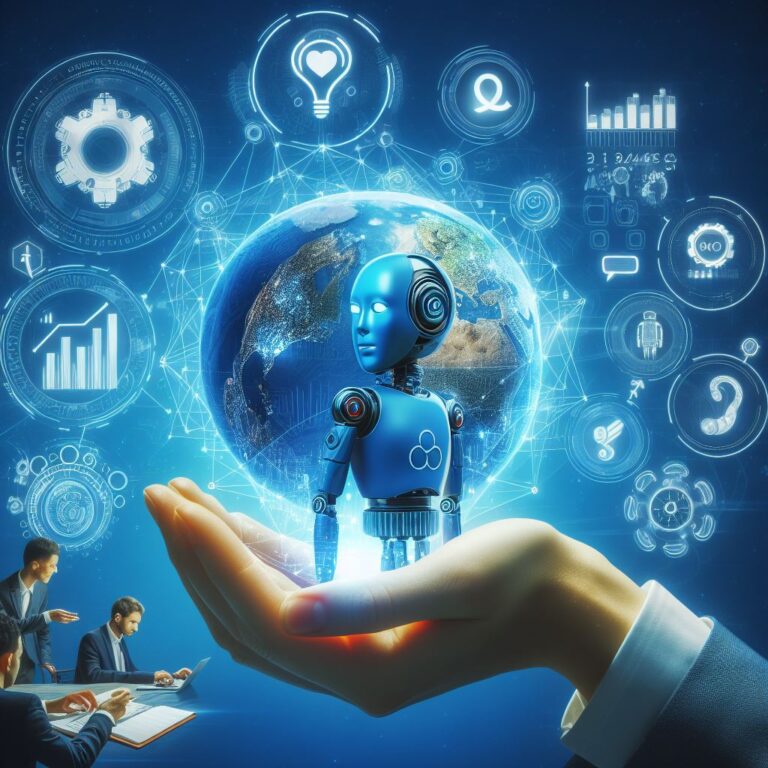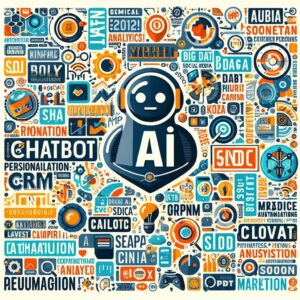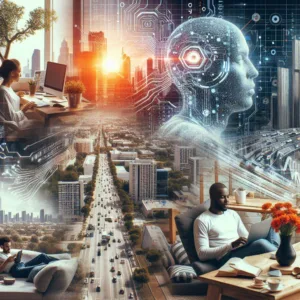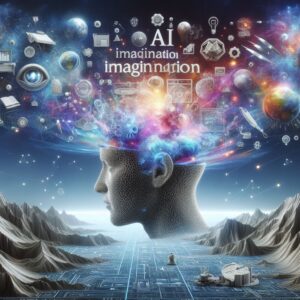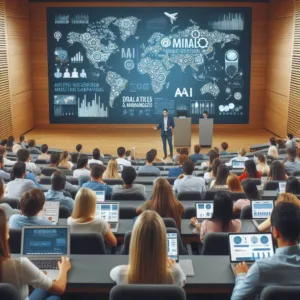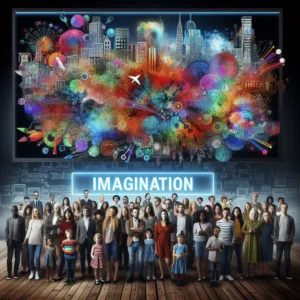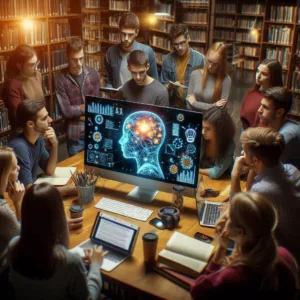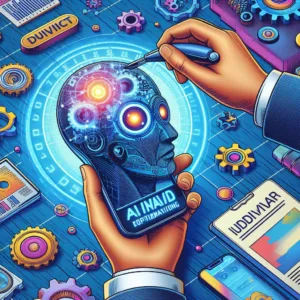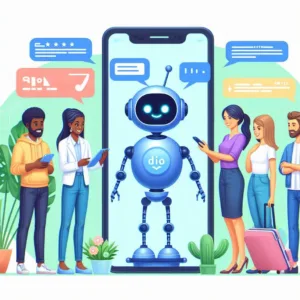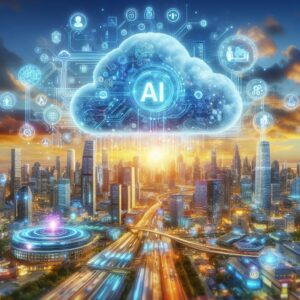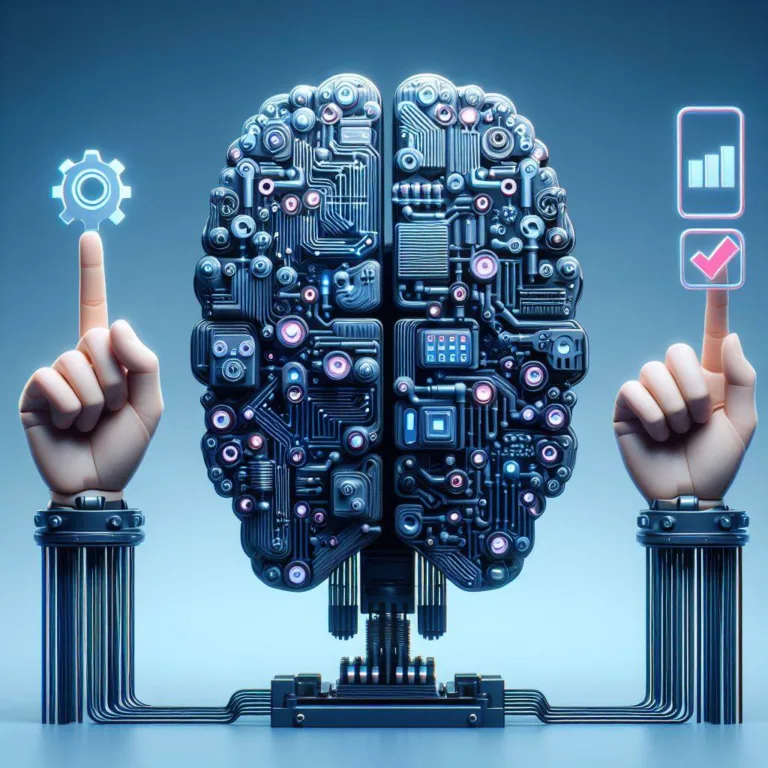Step into the vital world of AI in education, place innovation meets knowledge! In this introduction, we’ll investigate the transformative impact of artificial intelligence on new education. From personalized education experiences to contemporary teaching tools, AI is changing classrooms worldwide.
Join us as we reveal the myriad ways that AI is transforming education. Whether you’re a faculty member seeking to enhance your teaching strategies or a student enthusiastic to embrace new knowledge technologies, this journey promises to be two together enlightening and empowering.
So, catch your favorite notebook and pen, and let’s embark on an exciting survey of AI in education. Together, we’ll delve into the world of intelligent tutoring wholes, adaptive education platforms, and so much more. Prepare to unlock the potential of AI and elevate your instructional experience to a new crest!
The Transformative Impact of AI in Education
Embodied Learning Experiences
In contemporary’s rapidly evolving instructional landscape, AI is transforming the way students get word from personalized learning happenings. By harnessing the power of AI algorithms, educators can tailor education materials and teaching patterns to suit the individual needs and learning styles of each student. This embodied approach not only enhances data but also promotes deeper understanding and memory of concepts.
Enhanced Instructional Outcomes
Moreover, AI in instruction is paving the way for improved educational outcomes. Accompanying AI-powered finishes and platforms, students can approach adaptive learning modules that adopt their progress in real time. This guarantees that students receive intended support precisely where they need it most, superior to improved academic acting and overall learning satisfaction.
Enabling Educators
Furthermore, AI empowers educators by providing them accompanying valuable insights into student progress and conduct. Through data analytics and predicting modeling, AI tools can label areas place students may be fighting and suggest personalized interferences. This enables educators to intervene proactively, and contribution timely support and guidance to help pupils succeed.
Personalized Learning: AI’s Role in Educational Innovation
Adjusting Learning Paths
AI’s duty in educational innovation is possibly most prominently seen in the domain of personalized learning. Through adjusting learning paths, AI algorithms resolve students’ learning presence and adapt instructional matters accordingly. This dynamic approach guarantees that students receive tailor-made content and support, optimizing their learning experiences and consequences.
Engagement and Motivation
Furthermore, AI-driven personalized knowledge fosters higher levels of data and motivation among graduates. By presenting content in a format that resounds with their interests and learning desires, AI-powered platforms attract students’ attention and strengthen active participation. This embodied approach not only makes learning more pleasing but also cultivates a sense of takeover over one’s educational journey.
Impartiality and Inclusion
Moreover, AI’s function in personalized learning advances equity and inclusion in instruction. By accommodating diverse knowledge needs and styles, AI-powered tools guarantee that every student has an approach to high-quality educational possessions and support. This helps level the playing field and reduces disparities in academic realization, ultimately fostering a more all-embracing learning environment for all pupils.
Navigating the Future: AI’s Integration into Learning Environments
Creative Teaching Methods
As we guide along the route, often over watering the future of education, AI’s integration into knowledge environments promises to bring about creative teaching methods. Accompanying AI-powered tools to a degree virtual tutors and chatbots, educators can supplement traditional demand with interactive and adjusting learning experiences. This unification not only enhances student data but also supplies educators with valuable insights into scholar progress and comprehension.
Personalized Response and Assessment
Furthermore, AI’s unification into learning environments expedites personalized feedback and estimates. Through automated grading plans and intelligent tutoring arrangements, AI can provide immediate responses to students on their performance and progress. This actual-time feedback loop allows students to track their education journey more effectively and allows educators to tailor their direction to address individual learning needs.
Future-Ready Skills Happening
Moreover, AI’s integration into education environments equips students with accompanying future-ready skills essential for success in the mathematical age. By incorporating AI technologies into the educational program, students gain hands-on occurrence with arising technologies and develop fault-finding thinking, problem-solving, and collaboration abilities. This prepares them to thrive in a briskly evolving workforce and guides them along the route, often over watering the challenges of an increasingly technology-compelled society.
Ready to revolutionize your classroom? Explore how AI can personalize learning experiences, enhance educational outcomes, and empower educators. Take the next step towards a brighter future in education with our AI-powered solutions.
Ethical Considerations in AI Education: Balancing Innovation and Responsibility
Focusing on Bias and Fairness
As we embrace AI in instruction, it’s crucial to address righteous considerations surrounding bias and justice. AI algorithms are not immune to biases inherent in the dossier they are trained on, which can perpetuate inequalities in instructional outcomes. Therefore, educators and planners must work together to mitigate bias and guarantee that AI systems advance fairness and equity in instruction.
Protecting Student Solitude
Additionally, preserving student privacy is principal in the ethical use of AI in education. AI sciences often depend on vast amounts of student dossier to personalize learning knowledge and provide insights into graduate progress. However, educators must plan out the protection of this dossier and implement robust security measures for fear of unauthorized approach and misuse.
Ensuring Accountability and transparency
Furthermore, ensuring responsibility and transparency in the arrangement of AI technologies is essential. Educators and developers must understand how AI algorithms make determinations and provide mechanisms for alternatives in case of mistakes or unintended consequences. By owning AI systems accountable for their conduct, we can build trust and confidence in their righteous use in education.
Exploring AI in Education: 5 Thought-Provoking Prompts
“Investigate how AI can be used to identify and address learning gaps among students, promoting more targeted interventions and support mechanisms.”
“Explore the potential ethical dilemmas associated with using AI in educational settings, including concerns about data privacy, algorithmic bias, and equitable access.”
“Imagine a scenario where AI-powered virtual assistants help students with their homework and study tasks, enhancing their learning experiences and academic performance.”
“Discuss the role of AI in fostering inclusive and diverse learning environments, ensuring that all students have access to personalized support and resources.”
“Host a workshop on AI literacy for educators, empowering them with the knowledge and skills needed to effectively integrate AI technologies into their teaching practices.”
Conclusion
the unification of AI in education presents two together immense opportunities and important ethical concerns. As we’ve explored the transformational potential of AI in shaping teaching and knowledge experiences, it’s owned by remembering the importance of righteous practices and responsible exercise.
The focus keyphrase “AI in Education” guides our thinking on the future of education, highlighting the need for contemplative consideration of issues to a degree of bias, privacy, and responsibility. By addressing these challenges head-on, we can harness the capacity of AI to create made-to-order, inclusive, and productive learning environments for pupils worldwide.
Affecting forward, educators, policymakers, and technology builders must collaborate approximately to ensure that AI sciences in education are deployed fairly and responsibly. By prioritizing fairness, transparency, and student solitude, we can maximize the benefits of AI while mitigating potential risks.
In grasping the possibilities of AI in instruction, let us wait committed to fostering a future place where every pupil has the opportunity to thrive and get. Together, let us touch explore, institute, and advance the field of education with honor and compassion.

